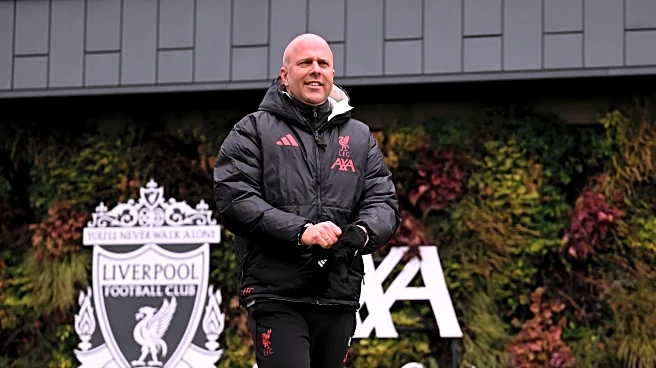What's Happening?
Elon Musk, CEO of Tesla, is at the center of a heated debate as shareholders prepare to vote on a compensation package that could make him the first trillionaire. The vote, taking place at Tesla's annual meeting in Austin, Texas, involves a proposal that would
grant Musk a significant amount of Tesla stock, contingent on achieving specific milestones. These include delivering 20 million vehicles over the next decade, increasing the company's market value, and producing one million robots. The proposal has faced opposition from several pension funds, which argue that the board is too aligned with Musk and that the compensation is excessive. Proponents argue that Musk's vision and leadership are vital for Tesla's future, particularly in advancing self-driving technology and robotics.
Why It's Important?
The decision on Musk's compensation package is significant for Tesla's future and the broader discourse on executive pay. Approval of the package would reinforce Musk's influence over Tesla, potentially shaping its strategic direction. Critics argue that such a large compensation package could exacerbate income inequality and raise concerns about corporate governance. Conversely, supporters believe that incentivizing Musk is crucial for maintaining Tesla's innovative leadership. The vote also underscores the ongoing debate about the role of CEOs in driving company success and the appropriate level of compensation for their contributions.
What's Next?
Should the pay package be approved, Musk will need to meet the outlined targets to receive the full compensation. This could drive Tesla to focus on achieving these ambitious goals, potentially impacting its operational strategies and market performance. The decision may also prompt further scrutiny of executive compensation practices, particularly in tech companies. Stakeholders, including investors and regulatory bodies, may continue to debate the balance between rewarding innovation and ensuring fair corporate governance.
















